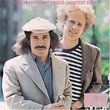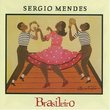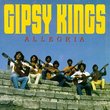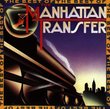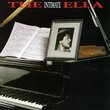| All Artists: Emerson String Quartet, Eugene Drucker, Philip Setzer, Lawrence Dutton, David Finckel Title: Intimate Letters (Janacek & Martinu) Members Wishing: 1 Total Copies: 0 Label: Deutsche Grammophon Original Release Date: 1/1/2009 Re-Release Date: 5/19/2009 Genre: Classical Styles: Chamber Music, Historical Periods, Classical (c.1770-1830) Number of Discs: 1 SwapaCD Credits: 1 UPC: 028947780939 |
Search - Emerson String Quartet, Eugene Drucker, Philip Setzer :: Intimate Letters (Janacek & Martinu)
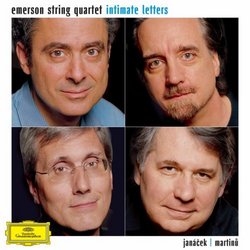 | Emerson String Quartet, Eugene Drucker, Philip Setzer Intimate Letters (Janacek & Martinu) Genre: Classical
When the Emerson String Quartet releases an album, one s expectation of excellence isn t met it s exceeded. The Emersons exploration of Czech chamber music on this new recording further burnishes a lustrous reputation. The... more » |
Larger Image |
CD DetailsSynopsis
Product Description When the Emerson String Quartet releases an album, one s expectation of excellence isn t met it s exceeded. The Emersons exploration of Czech chamber music on this new recording further burnishes a lustrous reputation. The Emersons perform at a superior level of intensity, integrity, energy, and commitment demonstrated since its formation in 1976. It now brings these qualities to the first two of Janácek s String Quartets and 3 Madrigals for violin and viola by Martinu. Intimate Letters (Quartet no. 2) is based on Janácek s letters to his muse, Kamila Stösslová. We are the fortunate beneficiaries of Janácek s unrequited passion! This passionate piece also plays a key role in the Daniel-Day Lewis film, The Unbearable Lightness of Being. Similarly Requested CDs
|
CD ReviewsFierce Passion Needs Ferocious Playing Giordano Bruno | Wherever I am, I am. | 05/19/2009 (5 out of 5 stars) "Leos Janacek (1854-1928) wrote two string quartets, both in the last decade of his life, both reportedly energized by his unreciprocated passion for a much younger woman. Oddly I'm reminded of the great 14th C composer Guillaume Machaut, whose final masterpieces of poetry and music were inspired by the passionate flirtations of a younger woman. Thankfully, neither composer had access to Viagra! All their genius flowed into their music. Even without words, Janacek's two quartets throb with fierce passion and sexual longing. All the critiques and program notes I've ever read about the two quartets, including those with this recording by the Emerson Quartet, elaborate on the composer's personal circumstances and expatiate on the 'programmatic' qualities of the music. Well, dear readers, it is easier and livelier to write about jealousy (the theme of the Tolstoy story for which 'The Kreutzer Sonata' quartet is named) or obsession (Intimate Letters) than about shifting keys, fluctuations of tempo, and elusive thematic development! There IS a narrative quality to the structures of these two quartets, and an ineluctable sense that the composer was striving to express in music the kind of emotional turmoil usually expressed in words. Don't forget that Janacek was above all an opera composer, accustomed to the explicitness of words and drama. These quartets are in fact his 'largest' creations of pure instrumental music. If they seem to "speak" -- and they do -- it's clearly because Janacek heard every note as a word on a stage of sound. That's the magnificence of this performance by the Emerson Quartet, that they emote the notes like outbursts of language. They stop short of nothing to convey the passionate rhetoric of the musical phrases -- nothing, that is, that's available on the strings of their instruments. They are never satisfied with simple romantic sonority. Not a single phrase is merely 'played.' Every timbre is chosen to be expressive. You'll hear a lot of ferocious bowing, a lot of snarly bridge tones, a lot of chuff and scrape. Above all, the Emersons are fearless about taking chances with tempi, with dynamics, with attacks, with edgy tuning of chords. Others have treated Janacek as essentially a 19th C composer who lived well in the 20th C; the Emersons play him as a 20th C composer who was born decades before his time. Of course it all comes down to technical proficiency and assurance. The Emerson Quartet has performed these quartets in concert frequently and over many years. They've become intimate with the Intimate Letters and the intimate notes. I suspect that they've hesitated to commit their interpretations to recording until they were utterly confident in the results. They're a passionate bunch, the only major quartet that regularly performs standing rather than sitting. Their 'musica reservata' attitude has paid off in a recording of exquisite detail and impeccable ensemble. This is a career-crowning CD, the best they've ever done." Streamlined, modernist readings that slight Janacek's romant Santa Fe Listener | Santa Fe, NM USA | 05/19/2009 (4 out of 5 stars) "I find myself in an odd position, because as much as I agree with the previous, rapturous review, I came away not as impressed. The Janacek quartets do indeed "speak" as if words are being uttered rather than notes. Janacek's late idiom was passionate, abrupt in its changes of mood and style, and enigmatic. It's full-blown modernism that doesn't, however, stray into the mainstream of Second Viennese atonality.
The Emersons, as expected, preform these two jagged works with edgy excitement, but the result to my ears is too cold and streamlined; Janacek never fully renounced his romantic roots -- certainly not here, in music inspired by feverish, unrequited love -- nor did he forget Czech folk rhythms. When I turn to the live recording by the Alban Berg Quartet, I hear more dancing and romance; each voice has greater personality where the Emersons sound like a machine with interchangeable parts. Also, do I hear some squeaky, out of tune passagework form the first violin? That would be unthinkable with the ordinarily note-perfect Emersons, but dip into the first movement of Quartet #1 and the finale of Quartet #2. As a filler we get rarely heard duets for violin and viola by Martinu, a composer well remembered in his homeland of Czechoslovakia but not in his country of exile, the U.S., despite a vast output. Violinist Philip Setzer (who alternates first chair in the ensemble) and violist Lawrence Dutton are as perfectly matched in tone as you'd expect. Martinu's idiom includes fast counterpoint and fugal tail-chasing (as the title Three Madrigals implies); the tonality varies from folkloric to vaguely Debussian. The music is accessible, pleasant, and eminently forgettable. The main pleasure comes from hearing such amazing unanimity between two musicians. Since I'm caught in this odd position of recognizing the quality of the musicianship on display here but not admiring the stylistic approach, I'll err on the cautious side and give four stars -- three would seem like nitpicking." |

 Track Listings (11) - Disc #1
Track Listings (11) - Disc #1
